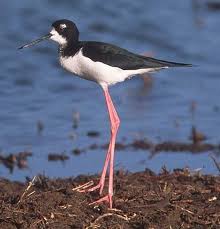
中文词源
stilt 柱子,支柱,高跷
可能来自中古荷兰语 stelte,高跷,来自 Proto-Germanic*steltijon,柱子,来自 PIE*stel,放置, 站立,词源同 stall,still.
英语词源
- stilt
-
stilt: [14] Stilt was probably acquired from some Low German source – Low German and Flemish have stilte. Its ultimate ancestor was a prehistoric Germanic *steltjōn, which was formed from a base meaning ‘walk stiffly, strut’ (source also of German stolz ‘proud’ and English stout). The derived stilted ‘over-dignified’ dates from the early 19th century.
=> stout - stilt (n.)
- early 14c., "a crutch," a common Germanic word (cognates: Danish stylte, Swedish stylta, Middle Low German, Middle Dutch stelte "stilt," Old High German stelza "plow handle, crutch"), though the exact relationship of them all is unclear, from Proto-Germanic *steltijon, from PIE root *stel- "to put, stand" (see stall (n.1)). Application to "wooden poles for walking across marshy ground, etc." is from mid-15c. Meaning "one of the posts on which a building is raised from the ground" is first attested 1690s. As a type of bird with long legs, from 1831. Stilted in the figurative sense of "pompous, stuffy" is first recorded 1820.
权威例句
- 1. The neighborhood is given over to performers, stilt walkers and drag queens.
- 社区变成了玩杂耍的、踩高跷的和扮装皇后的天地。
- 2. Thatch hut is raised high above the paddy field on stilt.
- 茅草屋用柱高高地建在稻田之上.
- 3. Zhangzhuang the stilt dance, in Changzhi City, is very famous.
- 张庄的高跷舞, 在长治市是很出名的.
- 4. Stilt dance basic moves are Yangko step.
- 高跷舞的基本动作是秧歌步.
- 5. Some palms , mangroves and other tropical trees form woody prop roots , often called stilt roots.
- 向地生长, 插入土壤,并对茎提供一定的支撑.
